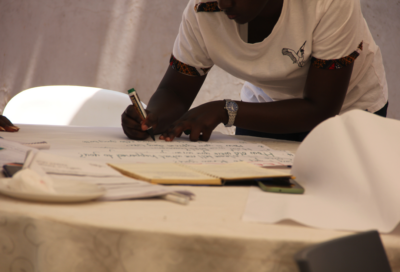European Symposium: Challenging Narratives, Fostering Empowerment and Collaborative Practice
Liverpool, UK
June 20-21, 2024

The International Coalition of Sites of Conscience-Europe (ICSC-Europe), National Museums Liverpool (NML) and the Transatlantic Slavery and Legacies in Museums Forum (TSLMF) hosted the European symposium Challenging Narratives, Fostering Empowerment and Collaborative Practice from June 20-21, 2024, in Liverpool (UK).
The symposium provided participants a space to reflect on and engage in a peer-to-peer exchange on the specific role that museums and heritage sites play as agents of social transformation, challenging inherently discriminatory narratives, and building empowering and equitable community partnerships. Please view a list of speakers here.
How do we connect past and present and address deeply rooted prejudices and discrimination? How do we develop inclusive approaches and practices at all levels of museums’ and cultural institutions’ work? How do we (re)build trust with historically marginalized groups/citizens and work together on a new narrative? How can we create safe spaces for difficult conversations and dialogue on contested pasts?
Representatives of European museums, heritage sites and cultural institutions actively working on challenging a range of exclusive narratives and creating spaces for dialogue and civic engagement were invited to explore these questions, share experiences and foster networking and collaboration to broaden and push forward the debate about memory work in Europe.

Following the day-long Symposium, on 21 June 2023, ICSC-Europe, in collaboration with the National Museums Liverpool (NML), provided a half-day capacity-building workshop based on ICSC’s Correcting the Record methodology that supports Sites of Conscience and like-minded organizations expand their social impact by establishing new organizational approaches and practices. The workshop strengthened participants’ skills to engage in a deep and honest self-assessment of all aspects of their work to ensure inclusive approaches and practices; adopt empowering and equitable co-creation practices with their communities; and build and interpret repositories in an inclusive and equitable manner.
Drawing from findings of the symposium, ICSC and partners developed a report that summarizes the presentations and conversations held during the symposium and presents the main learnings from the group discussions.

